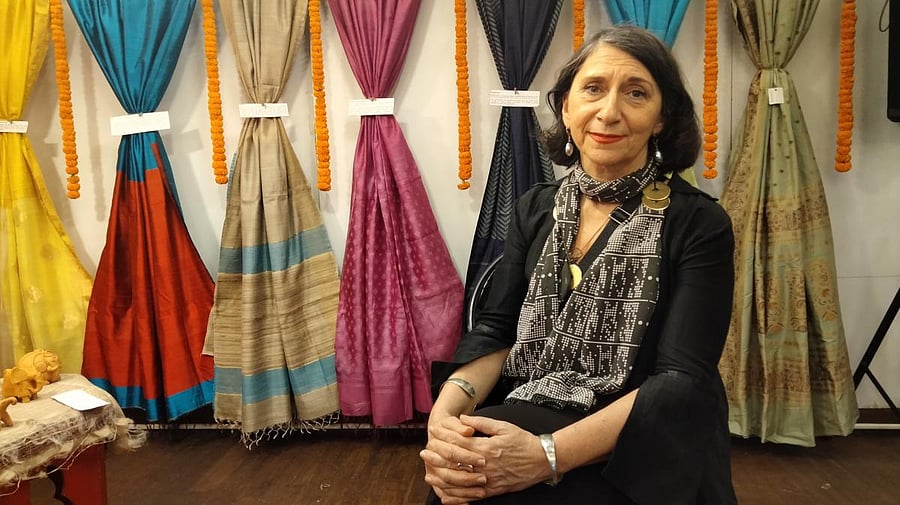
Bengaluru is now a part of the Silky Cities network, an international network of cities and silk metropolises located in eight countries. With this, India becomes the ninth nation on this silk map alongside France, China, Brazil, Japan, Uzbekistan, Georgia, Italy, and Spain.
Noted French textile artist Isabelle Moulin announced Bengaluru’s candidacy during her visit to the city last week. She was addressing the participants of a hackathon on AI in fashion and design here.
Speaking to Metrolife, Isabelle said she had been actively pursuing the introduction of India on the network for three years. A reception of an Indian delegation at the French silk festival and at the annual meeting of Silky Cities network in 2019 had set the ball rolling. The network was created in 2019 by Métropole de Lyon in France, and the Intersoie Consortium, a French silk association. It involves the public and the private sectors.
Bengaluru seemed like the most suitable candidate because it is located closer to major silk-producing regions in the country and is well-connected internationally.
Moreover, the International Sericultural Commission (ISC), an inter-governmental organisation focused on development of the sericulture and silk industry, shifted its office to Bengaluru from Lyon in France and has been functional since January 2013, Isabelle said.
Since Bengaluru is called India’s Silicon Valley, it offers technological competence that could facilitate innovation in textiles just the way Techtera, a textile cluster in France seeks to enhance competitiveness through collaborative innovation, she continued.
We asked how Bengaluru, and with that India, would benefit from the network. In a globalised trade environment, the future of silk depends on sharing of competence and knowledge she said. “Textiles are everywhere. It's a highly technological domain now, and Bengaluru is a highly technological city. Connecting clusters such as in Lyon with Bengaluru could do wonders.”
Plus, silk offers robust business opportunities. “Silk has unmatched qualities that are difficult to find in other fibres, and has many applications. It could be one of the materials of the future,” Isabelle added.
Bengaluru’s entry into the network could be officiated later this year in France, in the month of November, during a silk-centric event, she informed. After the Bengaluru visit, Isabelle launched her book ‘Impressions Indiennes’ at Oxford Bookstore in Kolkata.